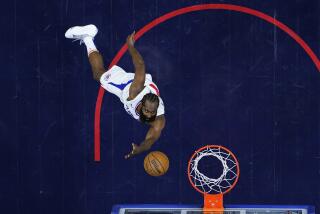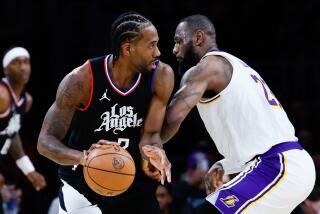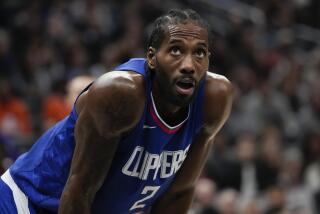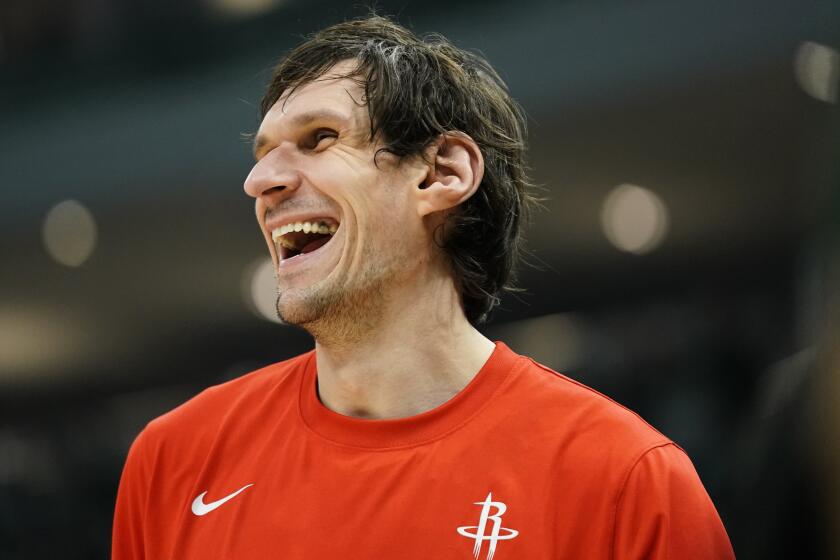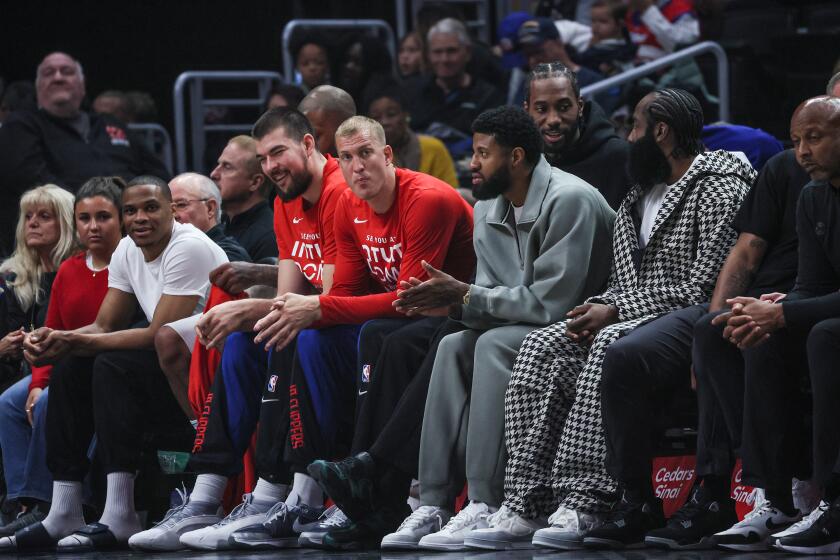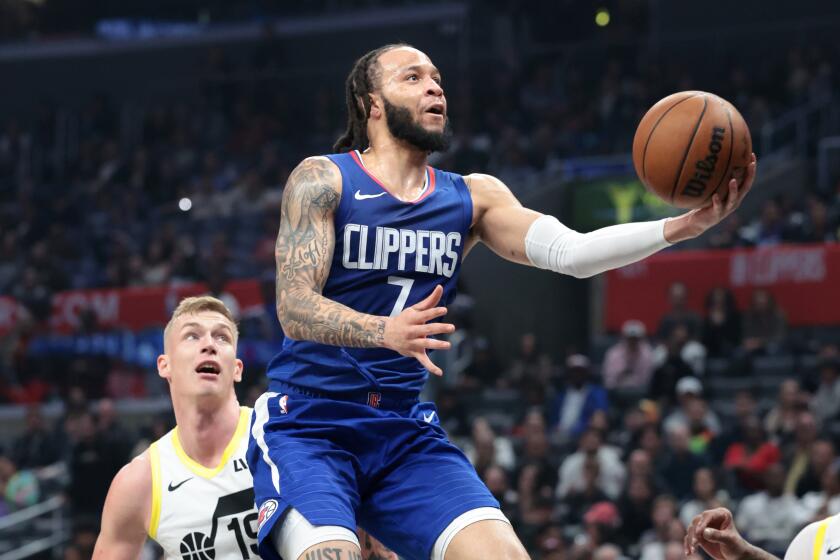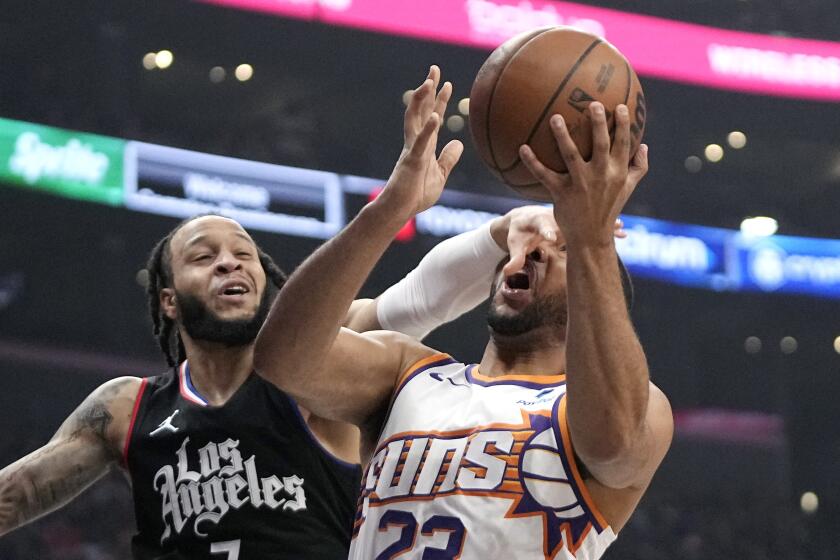Clippers give a nod to NBA’s new public report on officials’ calls
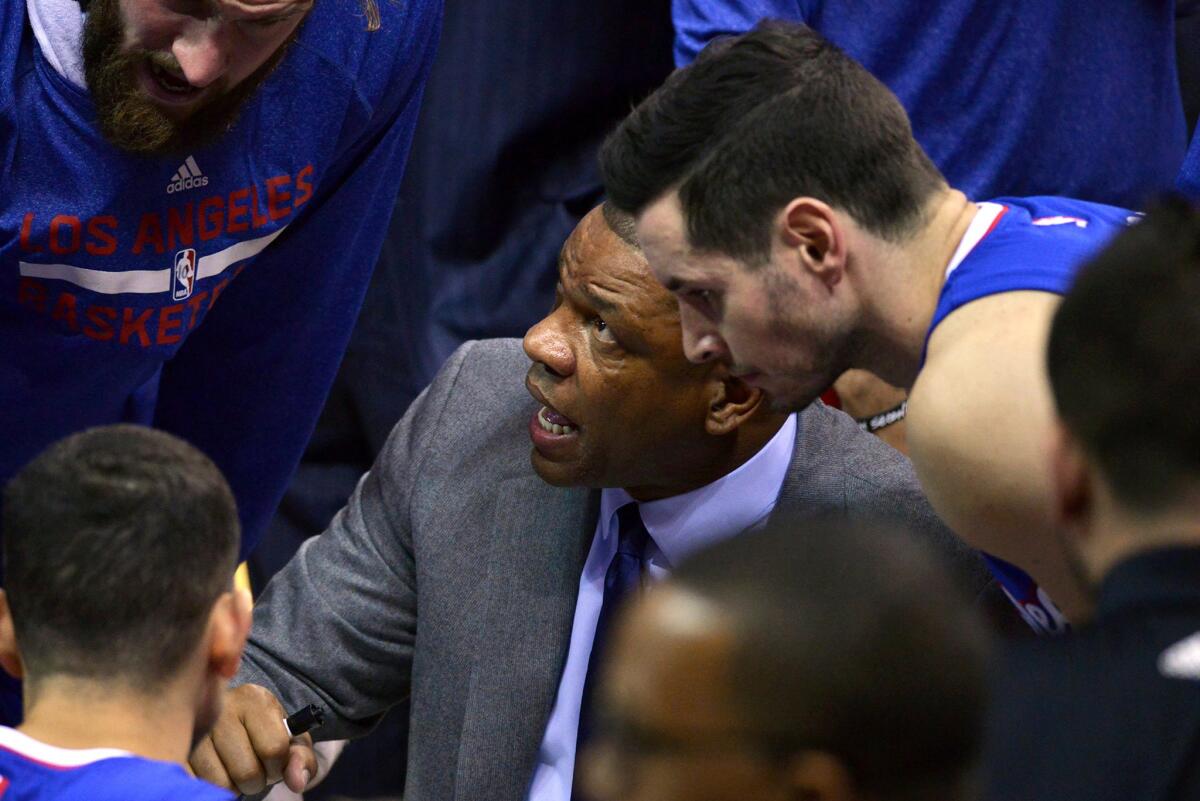
MEMPHIS, Tenn. -- In the world according to Matt Barnes, the NBA should have gone even further than it did Friday when it announced it would start publicly disclosing reports on officials’ calls in the last two minutes of close games.
“What about the other 46 minutes?” Barnes asked dryly.
The Clippers forward was at the epicenter of one of the most controversial calls of the playoffs last season when he stripped the ball from Oklahoma City’s Reggie Jackson but also appeared to foul him with 11.3 seconds left in Game 5 of the Western Conference semifinals.
The ball looked as if it went off Jackson’s hands but was awarded to the Thunder even after officials reviewed the call on replay monitors. Crew chief Tony Brothers explained after the Thunder’s victory that the review was inconclusive.
Barnes said he liked the idea of holding referees more accountable. Reports will be distributed the day after games in which teams are within five points of each other at the two-minute mark in the fourth quarter.
“They’re not perfect just like we’re not perfect,” Barnes said of the referees, “but I just feel like they should be held to a higher standard and I think this is the first step to it.”
Clippers Coach Doc Rivers said he liked the transparency of the reports but also envisioned drawbacks.
“It’s a human game and we’re going to make mistakes,” Rivers said. “I don’t know if we need to broadcast them all the time. We should do it for the players too. Like I should, after every game, do a video and release it and show all the coaching mistakes I made and all the playing mistakes that the players made
“At some point, guys, it’s a heck of a game and just enjoy the game.”
Pioneer’s impact
Rivers grew up knowing about Earl Lloyd. His father made sure of it.
“My dad was a basketball player,” Rivers said, “so you had no choice but to hear his basketball stories whether you wanted to hear them or not.”
Lloyd, who became the first black player in NBA history when he stepped on the court on Halloween night in 1950 in Rochester, N.Y., for the Washington Capitols, died Thursday at age 86.
Rivers said Lloyd wasn’t as widely acknowledged as Jackie Robinson, who broke baseball’s color barrier, because basketball was less popular at that time. But Lloyd faced many of the same challenges as a pioneer. He was spit on walking off the court in Fort Wayne, Ind., and frequented jazz clubs in cities where he couldn’t eat at the same restaurants as his white teammates.
“Our guys can’t relate to that,” Rivers said of the discrimination faced by the game’s first black players, “because they’ve never had to deal with it.”
Twitter: @latbbolch
More to Read
Get our high school sports newsletter
Prep Rally is devoted to the SoCal high school sports experience, bringing you scores, stories and a behind-the-scenes look at what makes prep sports so popular.
You may occasionally receive promotional content from the Los Angeles Times.

